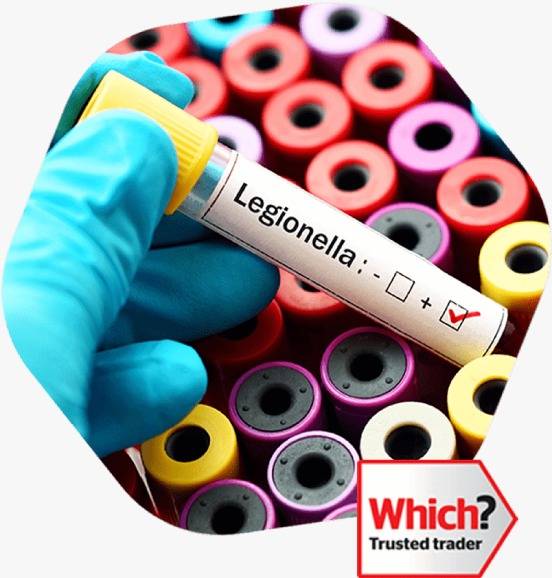
Ensuring Water Safety for Landlords and Building Managers
Are you in need of a Legionella Risk Assessment in London? Regular inspections of water systems are crucial for health and safety reasons and to ensure the cleanliness and safety of your drinking water. As a responsible landlord or building manager, it is your duty to prioritise the safety of all occupants.
A Legionella Risk Assessment (LRA) is a comprehensive evaluation conducted by a water hygiene specialist to identify potential risks associated with Legionella disease. By performing a Legionella Risk Assessment (LRA), you can ensure that your business premises adhere to legal requirements and reassure occupants by confirming that the water system is devoid of Legionella bacteria. This proactive measure grants peace of mind and helps maintain a safe environment.
Understanding Legionella and its Risks:
Legionella is a severe form of pneumonia caused by Legionella bacteria. Inhalation of droplets containing these bacteria can pose significant health risks. Any water system, including hot and cold water systems, cooling towers, and spas, can provide an environment for Legionella growth if favourable conditions exist.
Therefore, responsible management of water systems is essential to prevent the spread of Legionella and protect the health of occupants.
The Importance of Legionella Risk Assessment:
A Legionella Risk Assessment should be conducted at least every two years, as recommended by the Health and Safety Executive (HSE) code of practice, known as ACoP L8. This assessment helps identify potential sources of Legionella contamination and evaluates the effectiveness of existing control measures. It is especially crucial for high-risk buildings and vulnerable populations, such as the elderly or those with pre-existing health conditions, to undergo more frequent assessments and water testing.
Types of Legionella Risk Assessments:
There are two primary types of Legionella Risk Assessments:
Domestic and Commercial
Both assessments aim to detect, manage, and control Legionella bacteria within a property’s water supply system. While it may not be at the top of your priority list as a landlord or building manager, having a valid Legionella Risk Assessment certificate demonstrates your commitment to occupant safety.
Key Components of a Legionella Risk Assessment:
A comprehensive Legionella Risk Assessment should include examining historical and current records, consultation with responsible parties, and a thorough site investigation. It should cover aspects such as sources of potable water, temperature control strategies, evaluation of wading pools (if applicable), and review of cleaning and disinfection practices.
Additionally, it should include an inspection of air handling systems, aerators, and showerheads to ensure proper maintenance.
Steps in the Legionella Risk Assessment Process:
The Legionella Risk Assessment process involves several key steps. Firstly, you need to determine potential water sources that may pose a risk of Legionella contamination. This includes assessing water systems that store or recirculate water, where temperatures range between 20 and 45 °C, and where organic debris or other elements that support bacterial growth are present. Additionally, you should consider individuals who may be at higher risk, such as older people, children, and those with weakened immune systems.
- Measurement and Evaluation:
Before implementing new measures, it is important to investigate existing Legionella control measures and evaluate their effectiveness. Engaging a specialist service or water treatment company for water testing is recommended, as they have the expertise and training to conduct accurate testing. Regular maintenance and cleaning practices should also be in place to ensure ongoing safety and compliance.
- Keeping Records and Ensuring Compliance:
It is essential to maintain detailed records of the Legionella Risk Assessment findings. These records should document identified risks and any remedial actions taken. By having a record of the assessment, you demonstrate your commitment to maintaining a safe environment for occupants.
- Accountability and Compliance:
To effectively manage Legionella risks, it is advisable to appoint a Legionella-responsible person who has the
Necessary training and understanding of water management systems. This person should have the authority to implement any recommended actions and ensure compliance with regulations. Organisations should entrust their risk assessment and management functions to qualified individuals who can implement control measures and strategies competently.
- Legally Required Legionella Risk Assessments:
Legionella risk assessments are legally required for employers, tenants, and facility managers. While these assessments can be outsourced to third-party suppliers, the owner or operator of the water system remains ultimately responsible for compliance. It is crucial to assign the role of Legionella management to a qualified water hygiene specialist who can demonstrate adherence to guidelines.
- Ensure Water Safety with a Legionella Risk Assessment:
By prioritising Legionella Risk Assessments, landlords and building managers can safeguard the health and well-being of occupants. Regular assessments, proper maintenance, and compliance with regulations are essential in minimising the risks associated with Legionella bacteria. Don’t overlook the importance of water safety – take proactive measures to protect your occupants and ensure a risk-free environment.







































